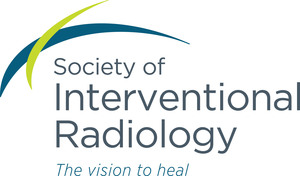FAIRFAX, Va., June 15, 2020 /PRNewswire/ -- A novel treatment for advanced mesothelioma is safe and effective and may improve the quality of life for patients who have few treatment options, according to research presented during a virtual session of the Society of Interventional Radiology's 2020 Annual Scientific Meeting on June 14. Transarterial chemoperfusion treatment for malignant pleural mesothelioma (MPM) comes with minimal side effects and shows promise for extending the lives of patients who have limited or no remaining treatment options.
"MPM is a devastating cancer of the membranes surrounding the lungs and it is very difficult to treat," said Bela Kis, MD, PhD, the principal investigator on the study and an interventional radiologist at the Moffitt Cancer Center in Tampa. "The typical survival rate of patients with stage 3 and 4 MPM is around 12 months from diagnosis; but with this new treatment, we are hoping we might be able to extend patients' lives beyond that—giving them more time with friends and family."
Twenty-seven patients with MPM were enrolled in the Phase II clinical trial and underwent chemoperfusion treatment. All patients had received prior chemotherapy, many of whom received multiple lines of chemotherapy. Four of the patients had prior radiation therapy and three patients had pleurectomy. All continued to have disease progression before enrollment.
Transarterial chemoperfusion delivers a relatively high concentration of drugs to diseased tissue in the lining of the lungs to maximize the treatment effect with limited side effects. Unlike other chemotherapy that is delivered intravenously and circulates through the entire body, interventional radiologists inject one-third of the chemotherapy cocktail of cisplatin, methotrexate, and gemcitabine directly into the internal mammary artery that supplies the pleura. The other two-thirds of the drugs are injected into the descending aorta, which reaches the intercostal vessels that also supply the pleura. The treatment is an outpatient procedure and typically lasts an hour, followed by a one-hour recovery.
The interim results of the study show 70.3 percent disease control rate and median overall survival rate of 8.5 months from the start of the chemoperfusion treatment. The treatment was well-tolerated by patients with a major complication rate of 1.4 percent. Most side effects were relatively minor, including mild nausea and chest pain.
Additional information about the clinical trial is available at ClinicalTrials.gov, using the identifier NCT02611037.
Abstract 1: Transarterial chemoperfusion treatment of unresectable pleural mesothelioma – interim results of a phase 2 prospective study. B. Kis, et al.
About the Society of Interventional Radiology
The Society of Interventional Radiology is a nonprofit, professional medical society representing more than 8,000 practicing interventional radiology physicians, trainees, students, scientists, and clinical associates, dedicated to improving patient care through the limitless potential of image-guided therapies. SIR's members work in a variety of settings and at different professional levels—from medical students and residents to university faculty and private practice physicians. Visit sirweb.org.
SOURCE Society of Interventional Radiology

Related Links
WANT YOUR COMPANY'S NEWS FEATURED ON PRNEWSWIRE.COM?
Newsrooms &
Influencers
Digital Media
Outlets
Journalists
Opted In




Share this article